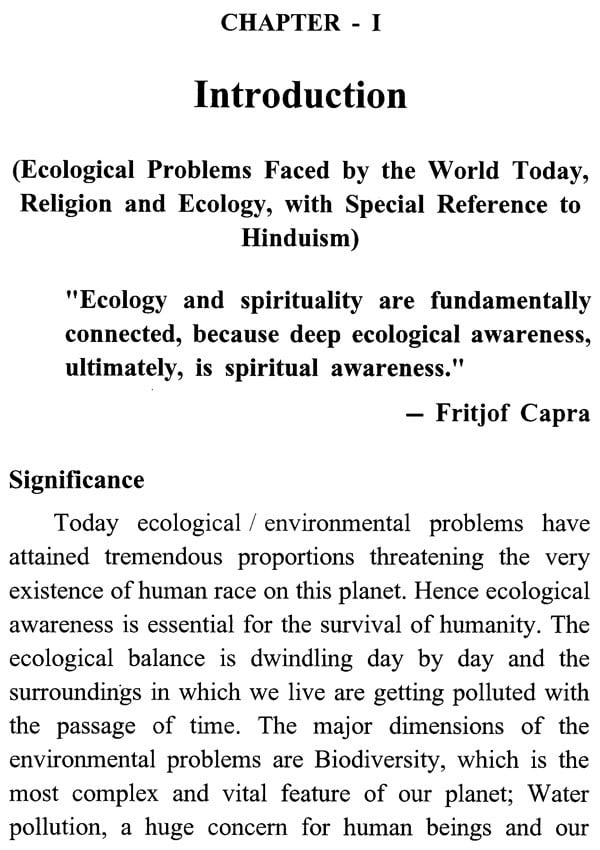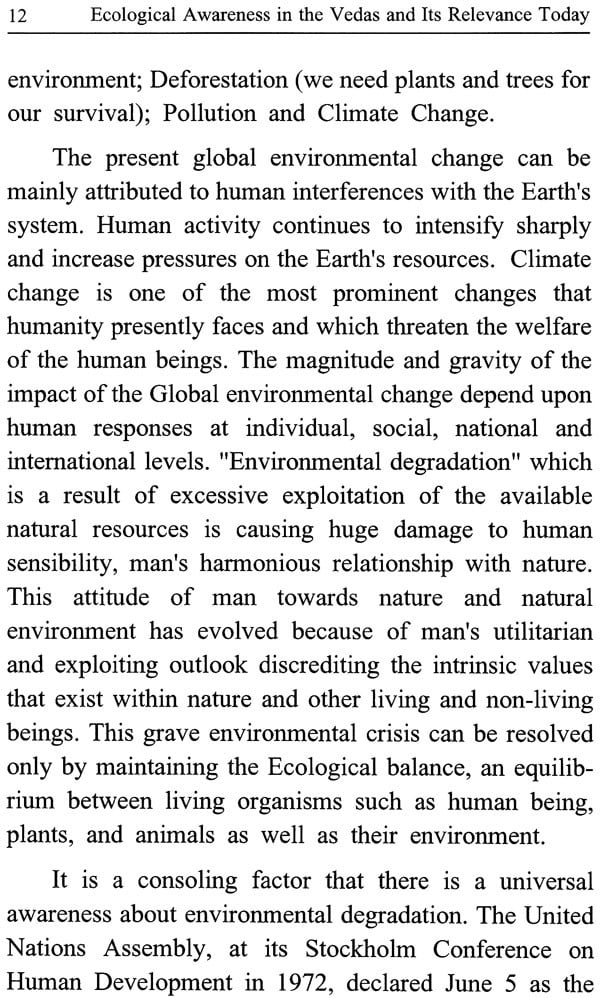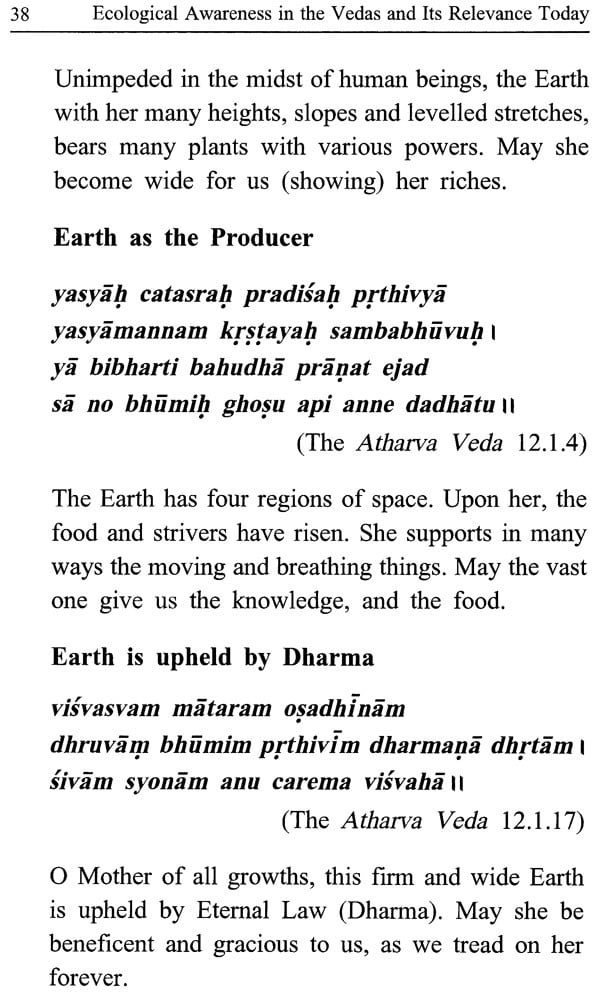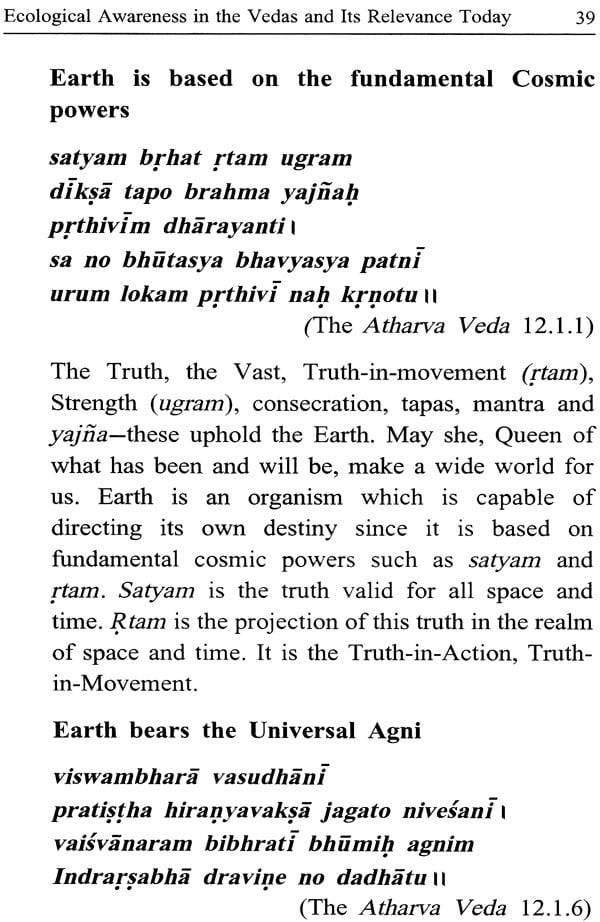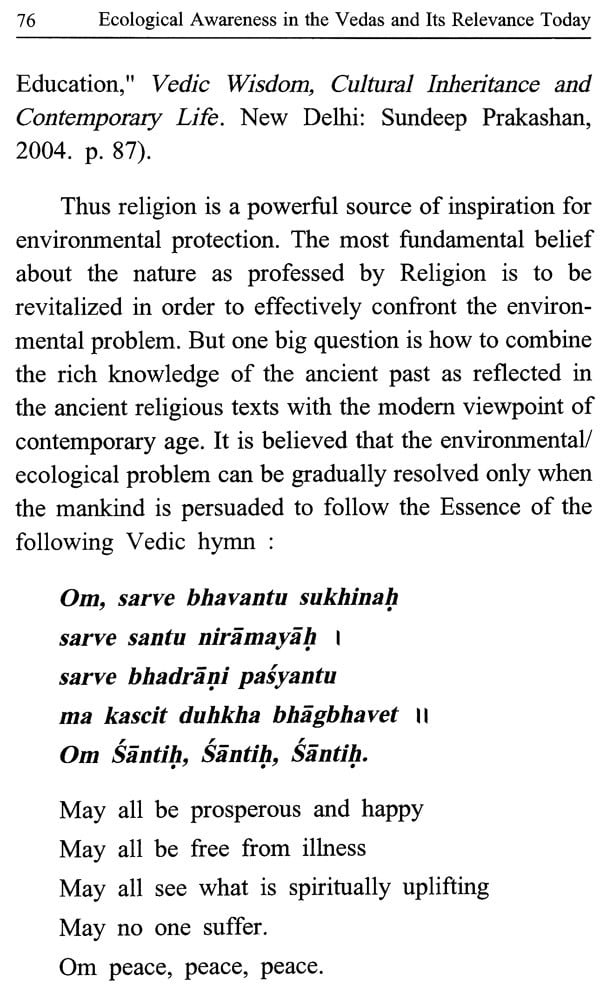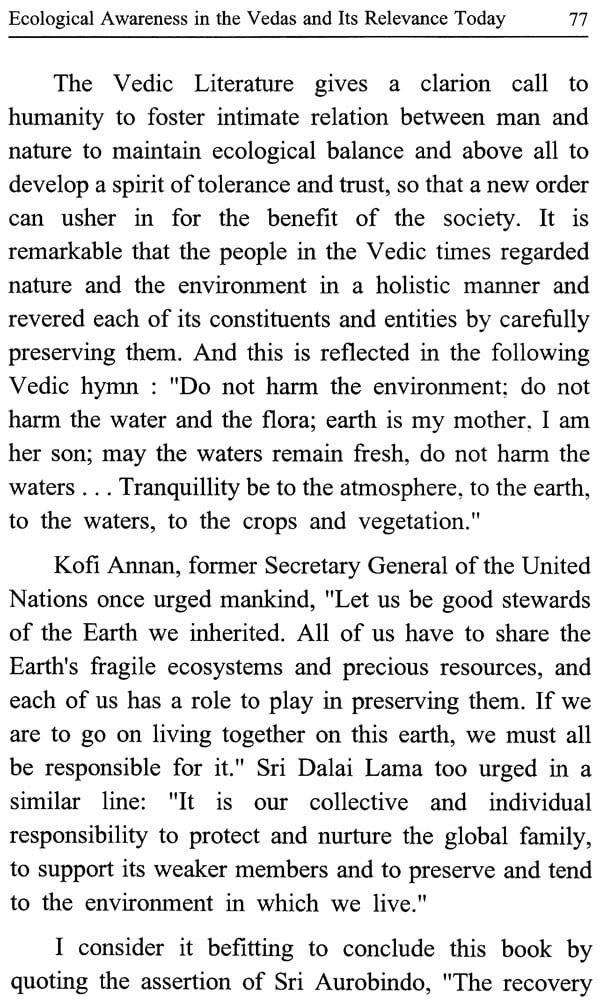
Ecological Awareness in the Vedas and Its Relevance Today
Book Specification
| Item Code: | TZZ531 |
| Author: | V. Nithyanantha Bhat |
| Publisher: | Sukrtindra Oriental Research Institute, Kerala |
| Language: | English |
| Edition: | 2021 |
| ISBN: | 9788195245840 |
| Pages: | 78 |
| Cover: | PAPERBACK |
| Other Details | 8.50 X 5.50 inches |
| Weight | 110 gm |
Book Description
It was to prevent disasters that ancient Indians sanctified nature. These traditions live on in our sacred groves, sthalavrksas, nandavanam, reverence for animals and so on. The roots of these traditions are found in Vedic literature, as delineated by Dr Nithyanantha Bhat. If we could remember and respect them, nature will protect the land and people forever. This book will contribute to the growing literature on the respect for nature in Hindu traditions."
The Hindu tradition gave the greatest respect to nature and natural resources. Before and after every ritual the shanti mantra is chanted, praying for peace to the elements. Before any construction, the earth is invoked for her blessings. By deeming the wind and waters sacred, pollution was avoided. Animals were revered either as deities, friends of deities or as vehicles of the Gods. The mountains were the abodes of the Gods and therefore had to be protected. And so on. No part of nature could be desecrated.
In preparing this book I have consulted the works of several thinkers and writers who have expressed their conviction that the Environmental ethics of Hindu religion, especially the Ecological awareness reflected in the Vedas, can play a major role in resolving the ecological/environmental problems faced by the man-kind today. I am indebted to all of them whose names are duly mentioned in the Text. I express my gratitude to Dr. K.L. Kashyap, Director, SAKSHI TRUST, Bangalore, for having permitted me to use his translations of the Vedic hymns from his works on Vedic Samhitas. I am thankful to Dr. G. Chandrasekhara Prabhu for having checked and corrected the Vedic Hymns quoted by me in the book.
Book's Contents and Sample Pages

